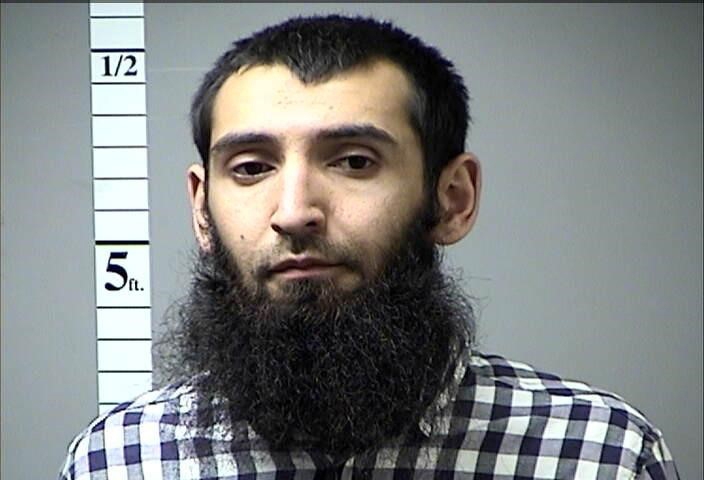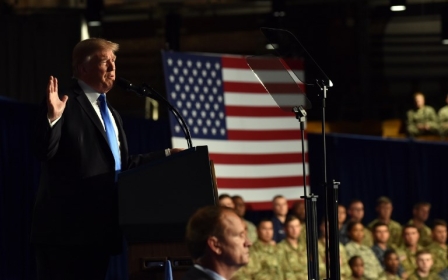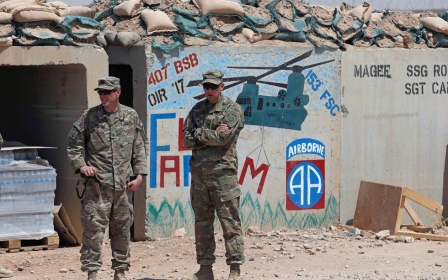Trump wants federal death penalty for NY truck attack

President Donald Trump on Thursday called for swift justice and the death penalty for the Uzbek national charged with carrying out the New York truck attack.
But the death penalty remains a rare sentence - and typically it takes years to be carried out.
Sayfullo Saipov, a 29-year-old immigrant from Uzbekistan, is accused of killing eight people in Tuesday's onslaught on a bike path in lower Manhattan.
Most crimes are tried under state law but New York is not one of the 31 US states that has capital punishment.
"I'm not someone who believes in the death penalty in general," New York's Democratic Mayor Bill de Blasio told a news conference on Thursday. "I believe this is an individual who should rot in prison for the rest of his life."
The federal government, however, can seek the death penalty for crimes codified under federal law as capital offences.
Destruction of a motor vehicle resulting in death - a charge prosecutors have already filed against Saipov - also is a federal crime punishable by death.
Other capital offences under federal law are treason, espionage, large-scale drug trafficking, assassination of the president or member of Congress, murder by use of explosives or chemical weapons, torture, war crimes, genocide, death resulting from aircraft hijacking, or death resulting from the deprivation of constitutional rights.
Slow road to execution
Since capital punishment was reinstated under federal law in 1988, the US Department of Justice has sought it in 300 cases.
Seventy-six of those federal cases resulted in death sentences, but 12 were later reviewed.
Only three federal executions have been carried out, including that of Timothy McVeigh, who killed 168 people in a truck bombing in Oklahoma City in 1995.
There are currently 61 people, including one woman, on death row for federal crimes.
Most are held in a high security prison in Terre Haute, Indiana, and despite the varied list of capital offences, all were sentenced after being convicted of murder-related charges.
Some are notable for the high profile nature of their crimes, such as Boston Marathon bomber Dzhokhar Tsarnaev and white supremacist Dylann Roof.
Roof was sentenced to death in January for killing nine black people in a shooting at a South Carolina church in 2015. He was prosecuted on 33 federal charges, including hate crimes resulting in death.
The difference in the number of criminals executed and the number condemned to death illustrates the long gap between sentencing and administering the lethal injection.
Experts say the federal government, unlike some states, shows little eagerness to execute - and in any case, appeals processes can last years, and even decades.
A counterproductive tweet?
Trump has not held back his frustration with the US justice system since the attack.
On Wednesday, he said America needs to "come up with punishment that is far quicker and far greater than the punishment these animals are getting right now," before tweeting "DEATH PENALTY!" on Thursday.
With these comments, Trump may have complicated matters for those prosecuting Saipov - breaking away from the convention that government officials do not comment on active criminal proceedings.
"Trump helped the terrorist with this tweet. Now prosecutors will have to spend time dealing with motions that the jury pool is tainted," ex-federal prosecutor Renato Mariotti wrote on Twitter.
New MEE newsletter: Jerusalem Dispatch
Sign up to get the latest insights and analysis on Israel-Palestine, alongside Turkey Unpacked and other MEE newsletters
Middle East Eye delivers independent and unrivalled coverage and analysis of the Middle East, North Africa and beyond. To learn more about republishing this content and the associated fees, please fill out this form. More about MEE can be found here.




